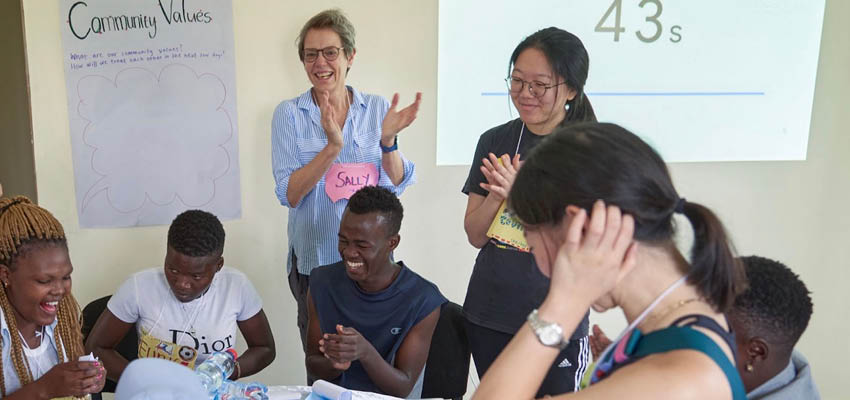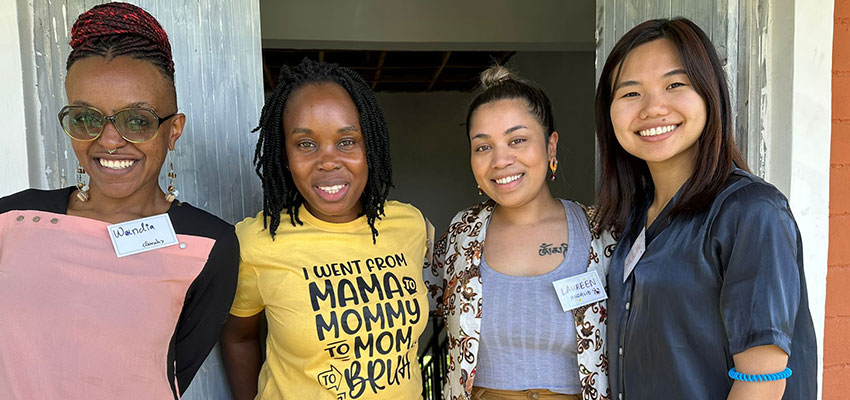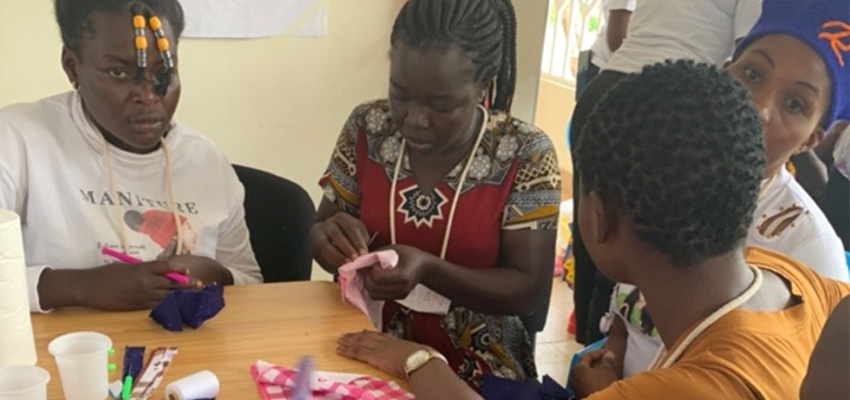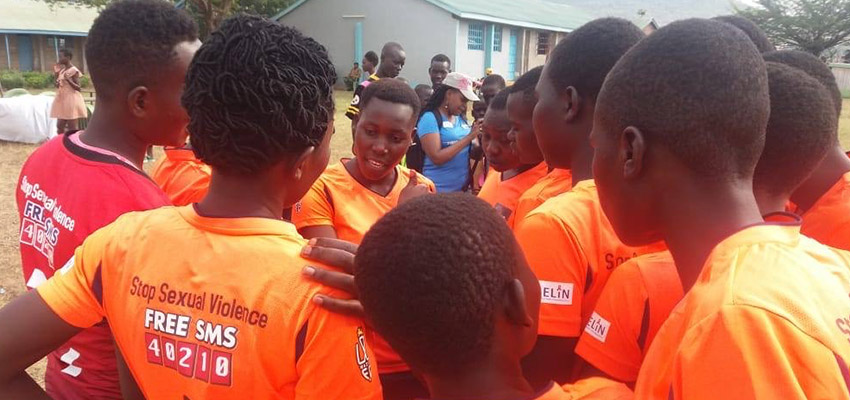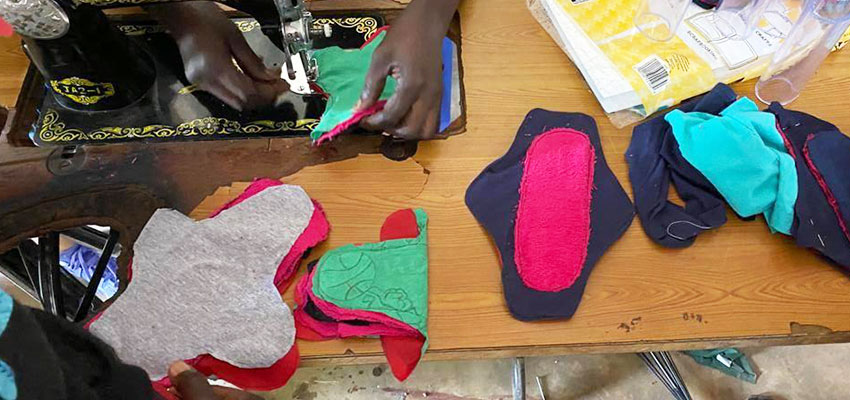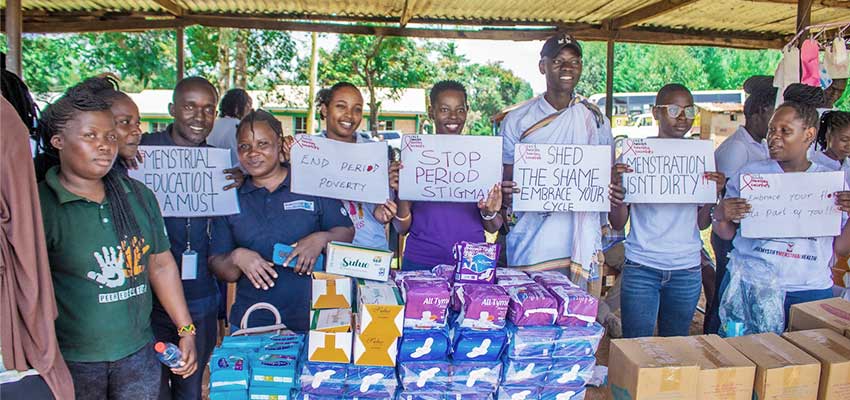
Promoting sexual, reproductive, and menstrual health and hygiene through public narrative and co-design.
The challenge
In many communities worldwide, women and girls are unable to access sexual and reproductive health (SRH) products and approaches, inhibiting their ability to complete their education and reach financial independence. In Homa Bay County, Kenya, 33% of girls fail to complete primary school as compared to 6% of boys. An inability to access menstrual products is a major cause of school absenteeism and dropout. Not all schools have toilet facilities and many girls have no way to manage menstruation other than rags. In addition, girls face stigma and humiliation due to myths and lack of knowledge. Although SRH education is provided in schools, the focus is on abstinence to prevent pregnancy and the transmission of STIs. As a result, about a third of girls give birth for the first time between the ages of 15 and 19, and one-half are married by 18. Furthermore, Homa Bay County is the region with the highest prevalence of HIV/AIDS in the country: ~33% of all women and ~25% of men are infected.
Co-design for menstrual health and hygiene
Since fall 2019, Sally Haslanger and Libby McDonald have taught a course on Gender and Development in MIT D-Lab. One of the projects in the course has been a partnership with the Society Empowerment Project in Oyugis, Kenya, to promote sexual and reproductive health and menstrual health and hygiene through public narrative and co-design. Each year, one or more teams of students from the D-Lab class have traveled to Kenya to deliver workshops and collaborate with SEP and local youth.
Knowledge
Most youths in Oyugis have little access to sex education and enter puberty without knowledge of what is happening to their bodies. D-Lab has worked with SEP to produce culturally and age-appropriate curricula for youth on sexual and reproductive health.
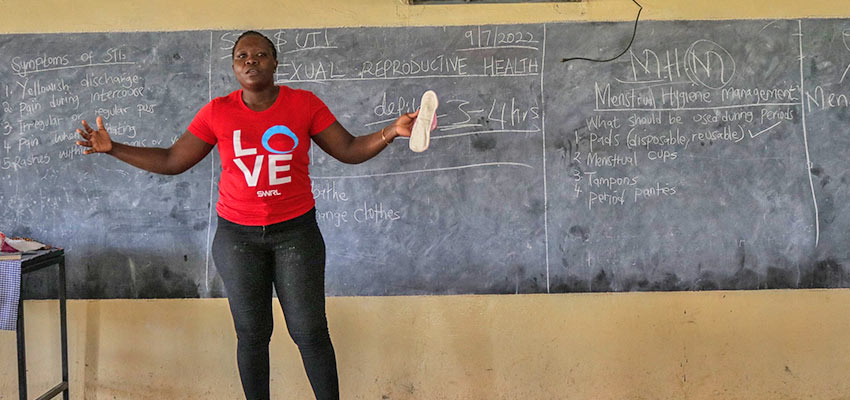
Public narrative
Based on the work of Marshall Ganz at the Harvard Kennedy School, D-Lab has worked with SEP to provide workshops, some in local high schools and some with young women who have dropped out of school due to pregnancy, around the experience of menstruation. Together, participants go through the three steps of public narrative (story of self, story of us, and story of now). These workshops enable participants to identify shared values and a sense of community in combating the isolation and shame of menstruation.
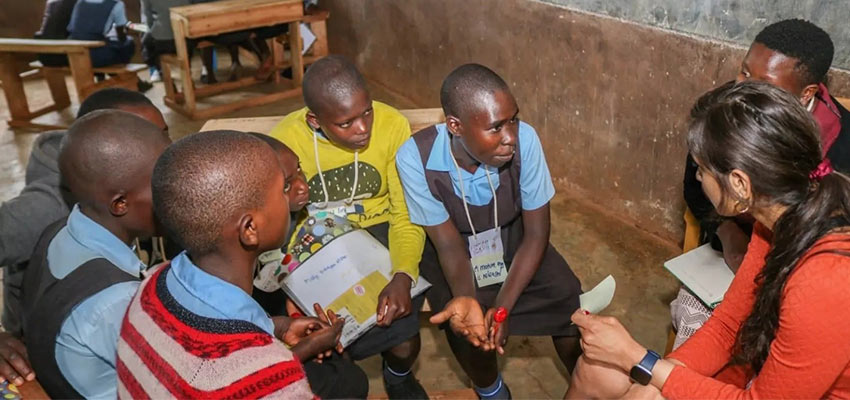
Co-design
Having participated in Creative Capacity Building Workshops and co-design, facilitators, and youth at SEP decided that the first step for addressing the challenges faced by young women would be to provide menstrual products. This would give girls greater opportunities to stay in school since many drop out at puberty due to the challenges of managing menstruation. They designed a reusable sanitary towel, taking it through many iterations.
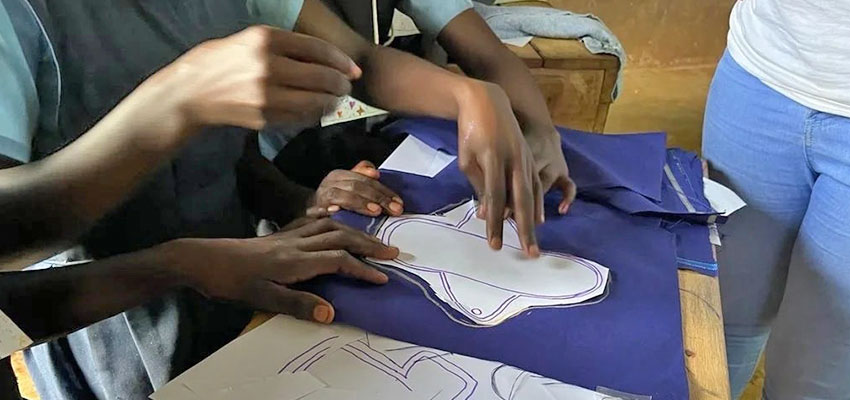
Build-it
In the process of building prototypes, a crucial step was to learn to sew. D-lab facilitators began to teach the basics in the workshops, but SEP participants also worked with local seamstresses to move from hand sewing, to sewing on pedal machines, to eventually using electric machines.
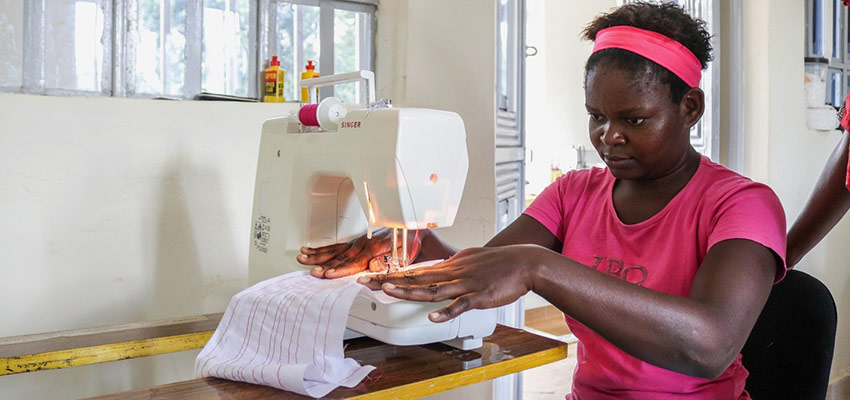
Prototype
In time, SEP developed a workable prototype of a reusable sanitary towel and wet bag so that girls could have the option of changing towels at school. You can find more photos of the work here and here.
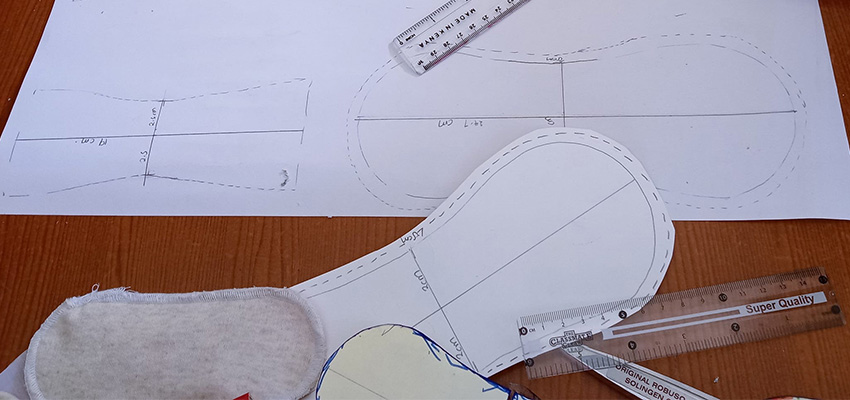
Production
With support from USAID for sewing machines and tables, and PUM (Netherlands) for a serger, SEP is now employing teen moms and other unemployed youth to produce their patented sanitary towel. It is marketed as Sulue. In Luo, Sulue means individual strength and self-esteem. SEP uses it for its product to dispel misconceptions about menstruation, such as stigma and taboos, and to emphasize that women can be strong, healthy, and happy while menstruating. The package contains 3 towels, a bar of soap, a washcloth, and a wetbag. It can be found in local shops and is sold to hospitals and other facilities.
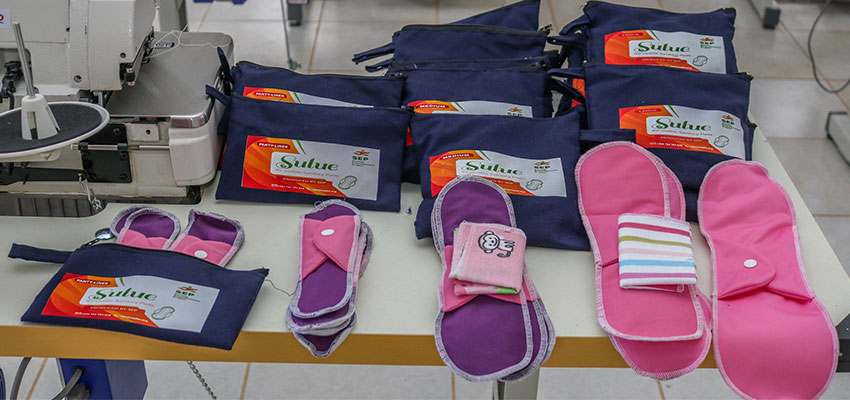
Data collection and impact
SEP has been recognized by the Kenya Bureau of Standards and the UN sponsored Leading Like Mandela Leadership Development Programme for the quality of its work and its impact on economic empowerment.

Outreach and impact
SEP has integrated the menstrual health and hygiene program with other programs for youth empowerment. The goal is not only to change the material conditions, but also change gender norms and enhance opportunity. In the new phase of D-Lab's work with SEP, we are working with teen moms to start their own small businesses to address food insecurity and promote collective agency.
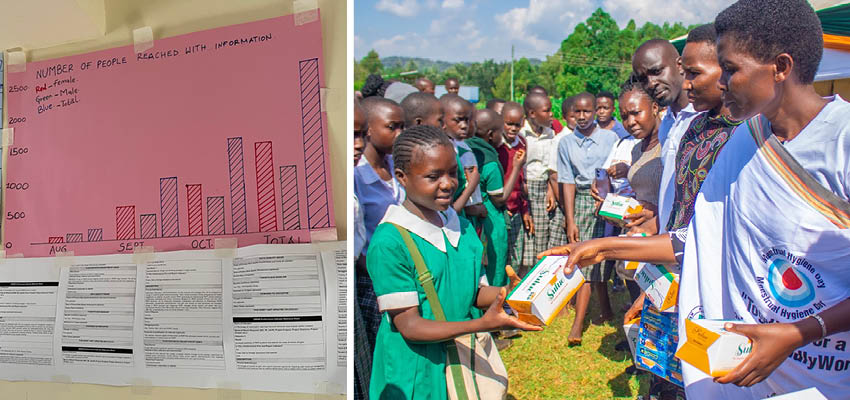
People and partners
This work would not be possible without the passion and hard work of the SEP staff. The team is also deeply grateful for Faith Kathoka, an MIT D-lab trained facilitator who works at the UN World Food Programme in Nairobi, and takes the time to assist them on the ground in workshops at SEP. And, of course, the MIT, Harvard, and Wellesley students in the D-Lab: Gender and Development at MIT.
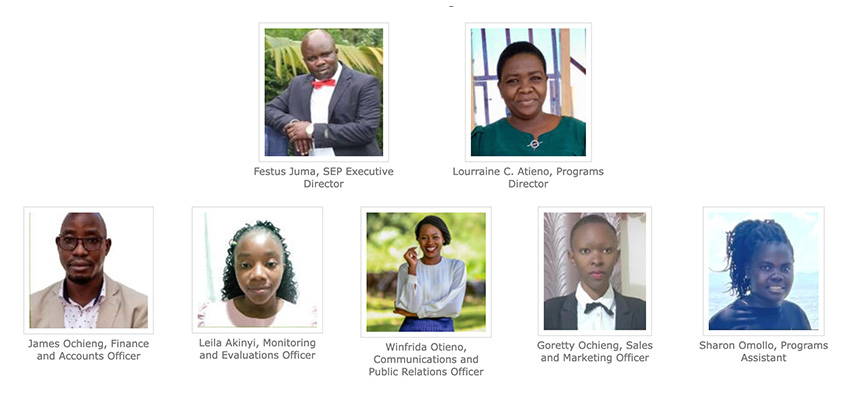
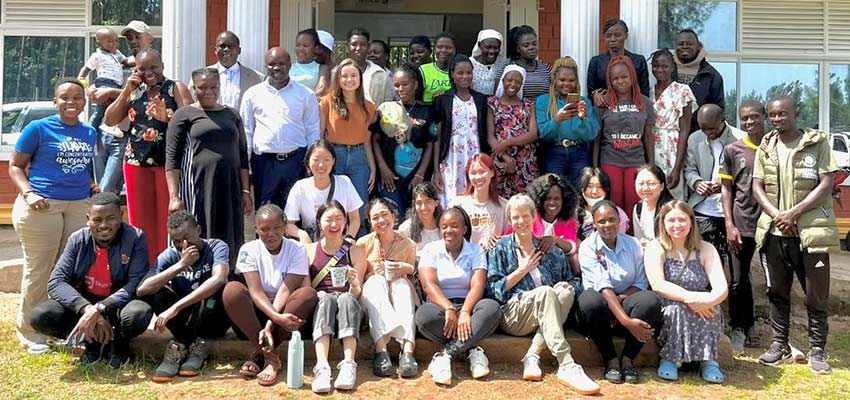
More information
MIT D-Lab class: D-Lab: Gender and Development
MIT D-Lab Community Partner: Society Empowerment Project (Kenya)
2022 Conference: The Power of Co-Design: Advancing Global Access to Sexual and Reproductive Health.
Contact
Sally Halsanger, MIT Ford Professor Philosphy and Women's and Gender Studies


